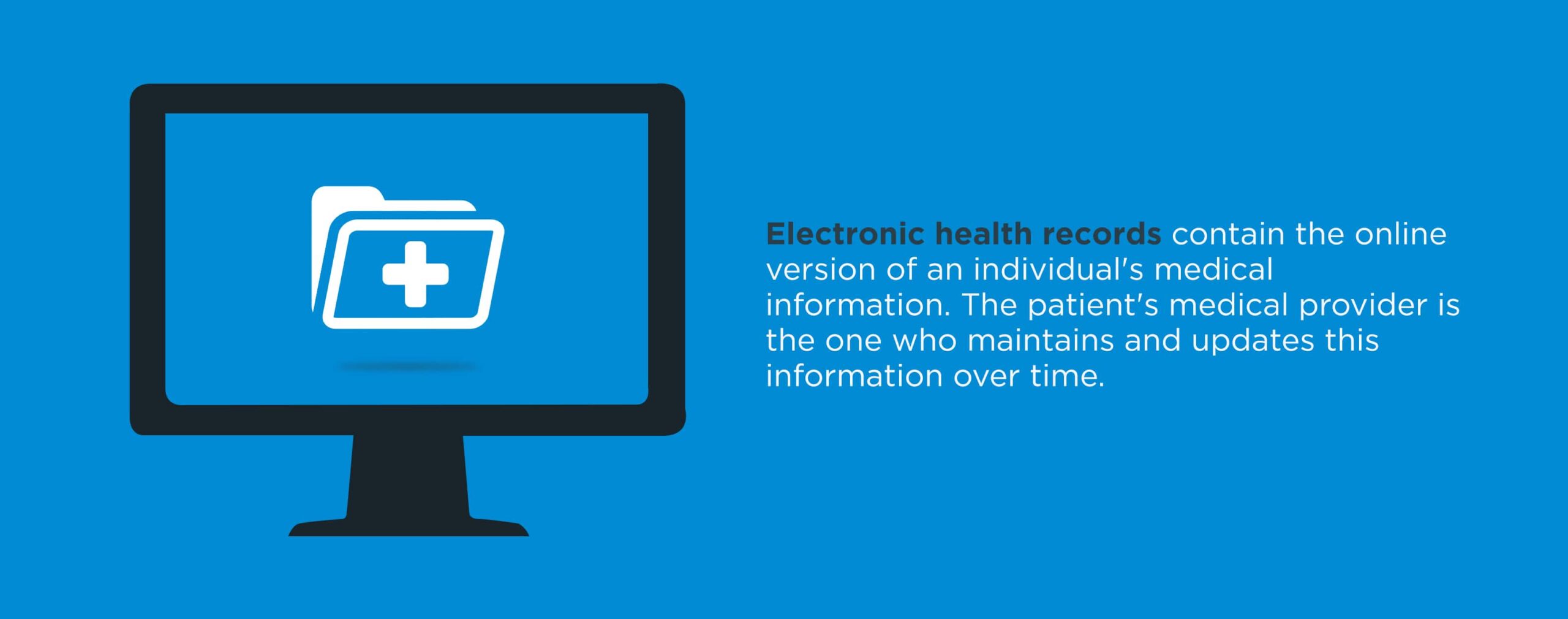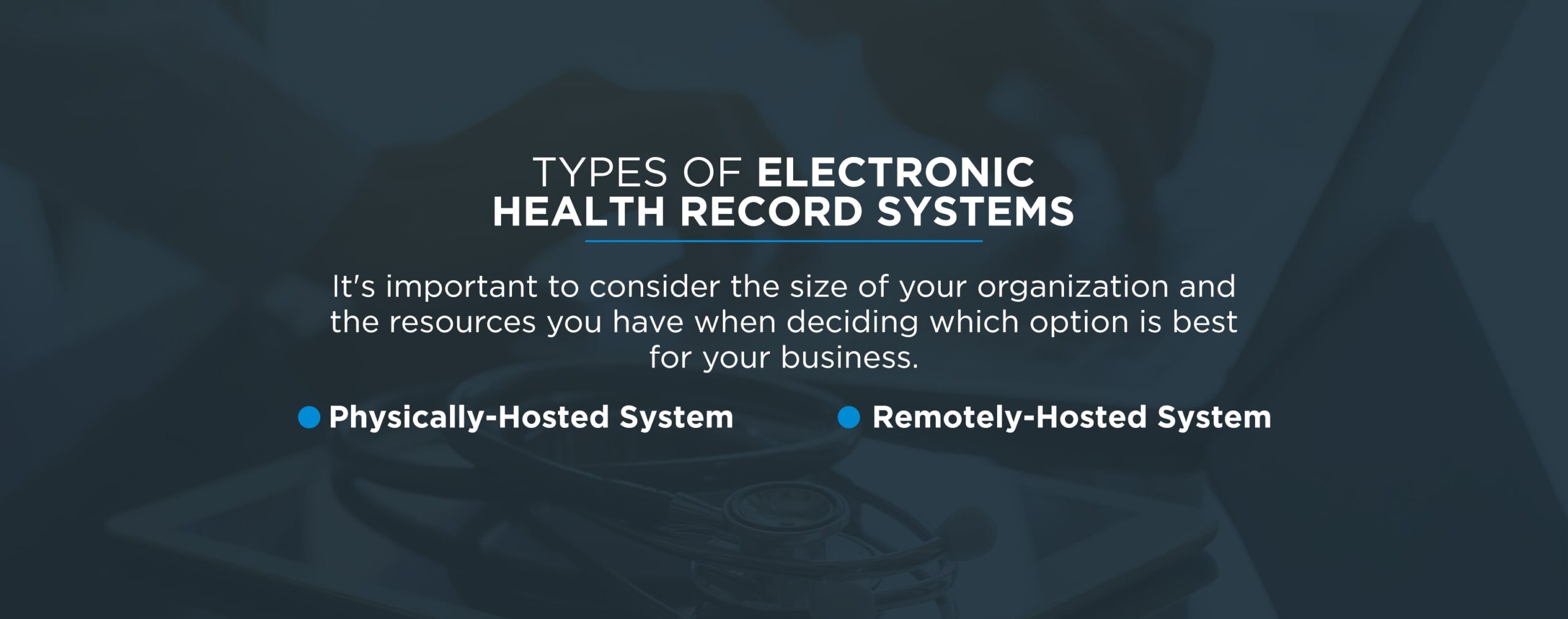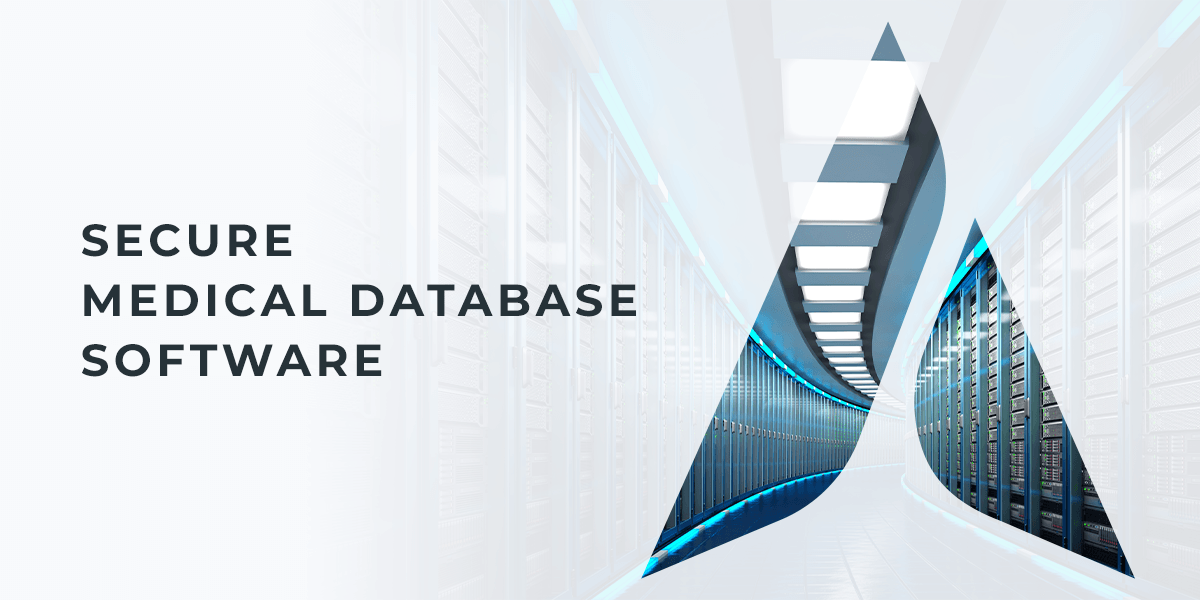Secure Electronic Health Record (EHR) Software
HIPAA and other important laws guard protected health information (PHI). However, as a healthcare provider, you need to have access to that data on location. Storing information on a computer system is typically more efficient than paper documents. That’s where EHR software comes into play.

What Is EHR?
Electronic health records contain the online version of an individual’s medical information. The patient’s medical provider is the one who maintains and updates this information over time. The data found within these records include medications, immunizations, test and lab results, and more.
All of this information is considered personal and protected, so it should not be shared with individuals outside of the patient’s care team. Cybersecurity is an essential measure to take for protecting this data.

Types of Electronic Health Record Systems
There are two types of electronic health records software you can choose from. You can either host a system with your servers on your premises or have someone else host it for you. It’s important to consider the size of your organization and the resources you have when deciding which option is best for your business.
Physically-Hosted System
For a physically-hosted EHR system, the data is stored on the servers at the physician’s office. The physician buys everything necessary to host the data, like the hardware and software. The office is also in charge of cybersecurity and maintenance measures. Practices of a larger size can benefit from hosting an EHR system.
Remotely-Hosted System
In a remotely-hosted system, a third-party company stores all of the data on their servers. The third party is now in charge of cybersecurity, data management, and more instead of the healthcare practice. There are three main types of remote EHR systems:
- Subsidized: The third-party host, like a hospital, subsidizes the cost of the EHR system and stores the physician’s data in their servers.
- Dedicated: All information from the physician’s practice is stored in a third-party vendor’s servers for this system, as well. These data centers have a specific location, and the physician will have less control over the data.
- Cloud: The third party stores the practice’s data in a cloud for this EHR system. Physicians and other professionals in the practice have easier access to the data through a website from the vendor.
List of Secure EHR Software
There are numerous types of secure EHR software available currently, including:
- athenaOne
- RXNT
- AdvancedMD EHR
- DrChrono
- Kareo Clinical
- NextGen Healthcare
- PrognoCIS
- Compulink Healthcare Solutions
- Elation
- ChartLogic EHR
- PatientNOW
- AestheticsPro
- Modernizing Medicine
- WebPT
- ChARM EHR
- CareCloud
- AllegianceMD
- Eyefinity EHR
- RevolutionEHR
Choose Agio Healthcare Services
Agio offers several top services for healthcare organizations. Learn more about our third-party risk management program, and feel free to contact us today.
Share post
Featured Posts
Connect with us.
Need a solution? Want to partner with us? Please complete the fields below to connect with a member of our team.



